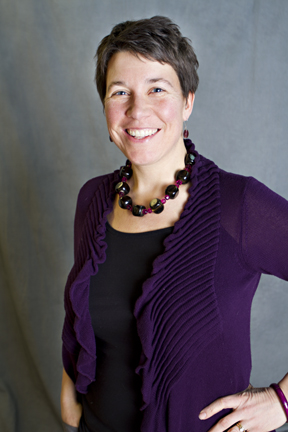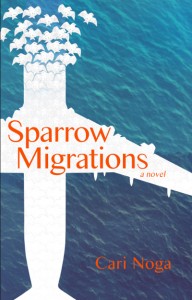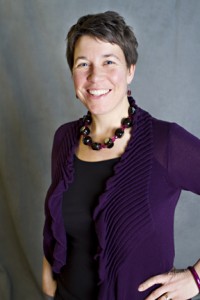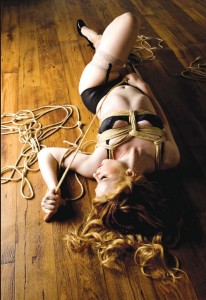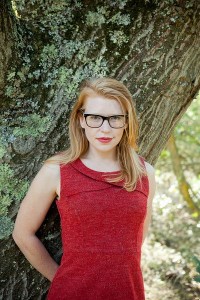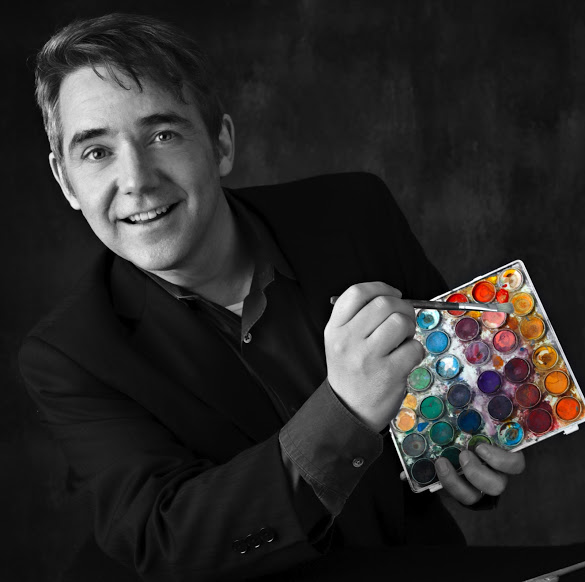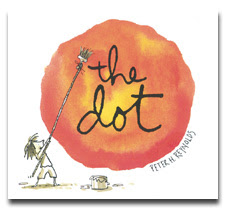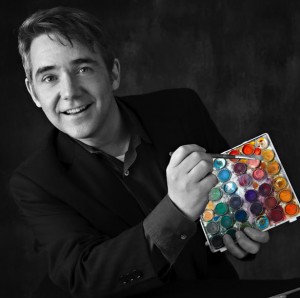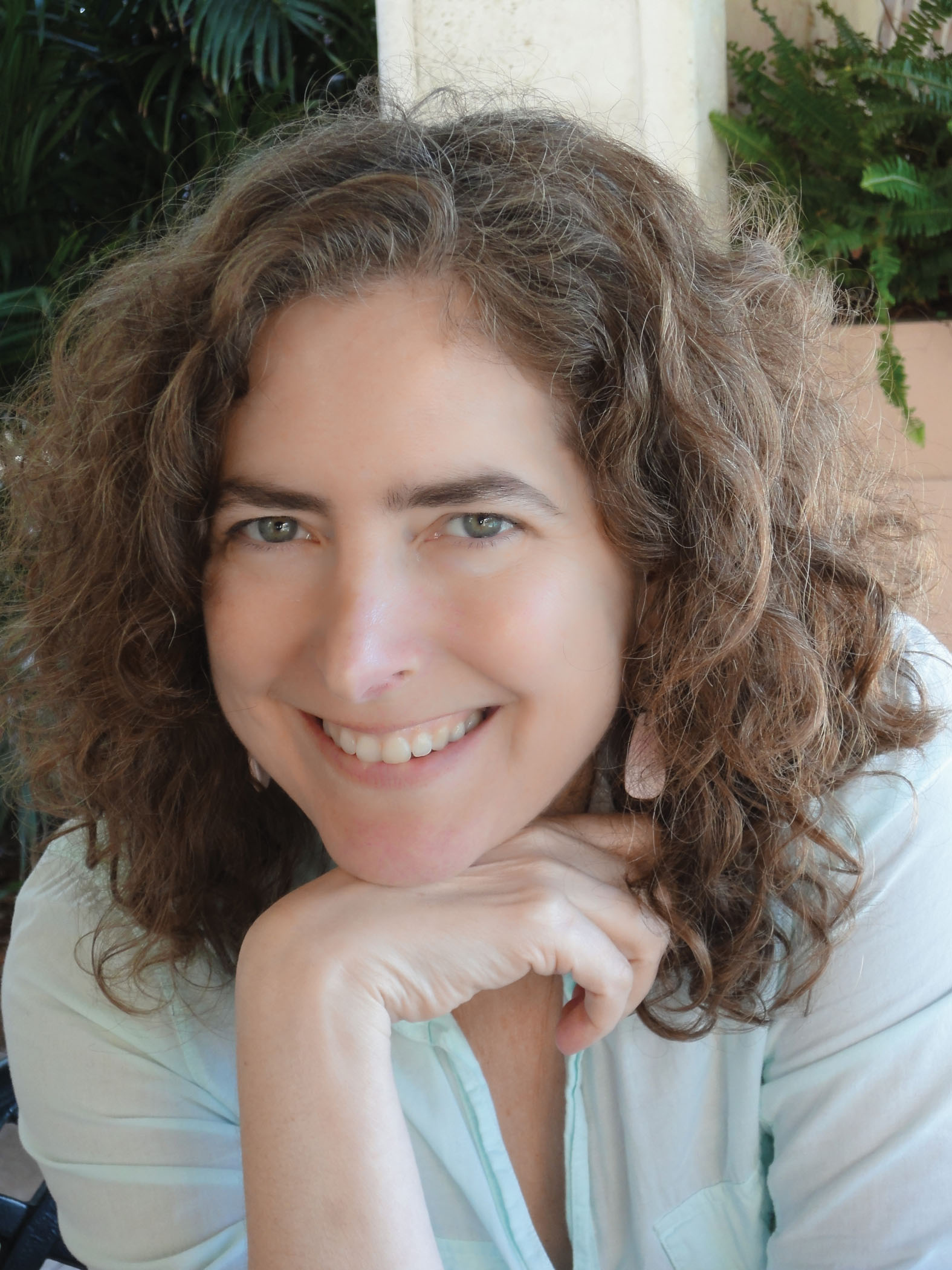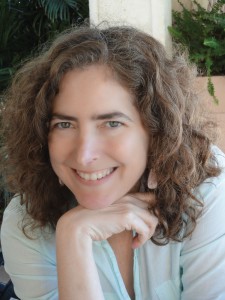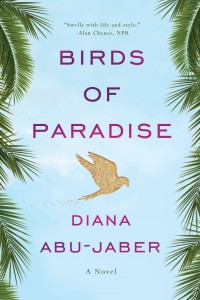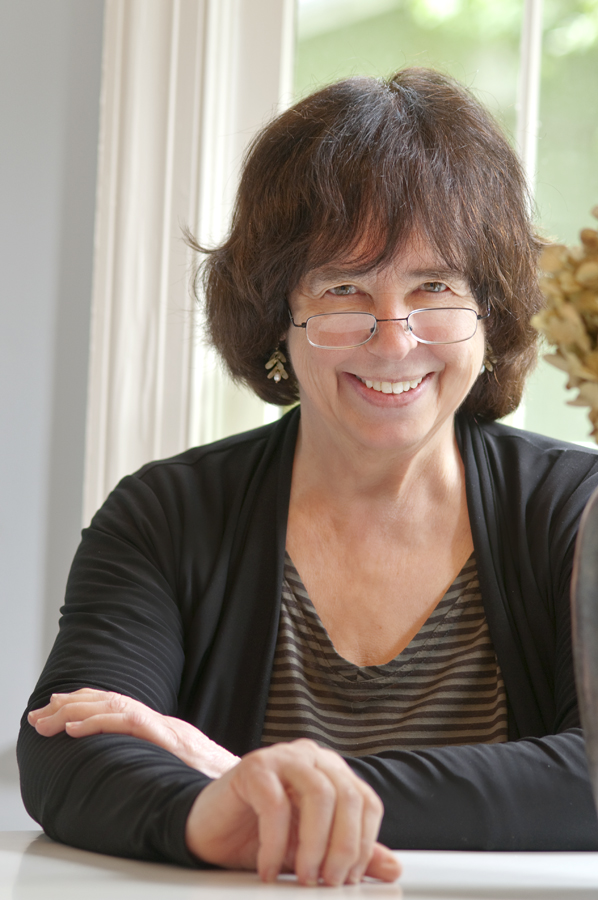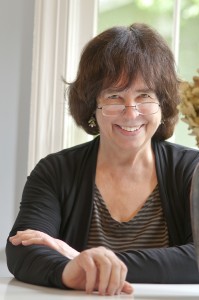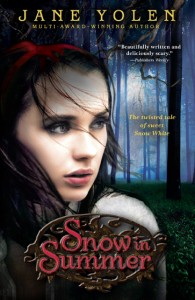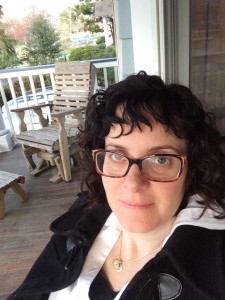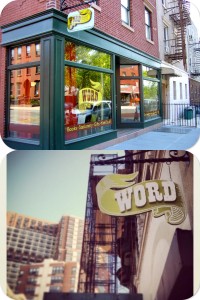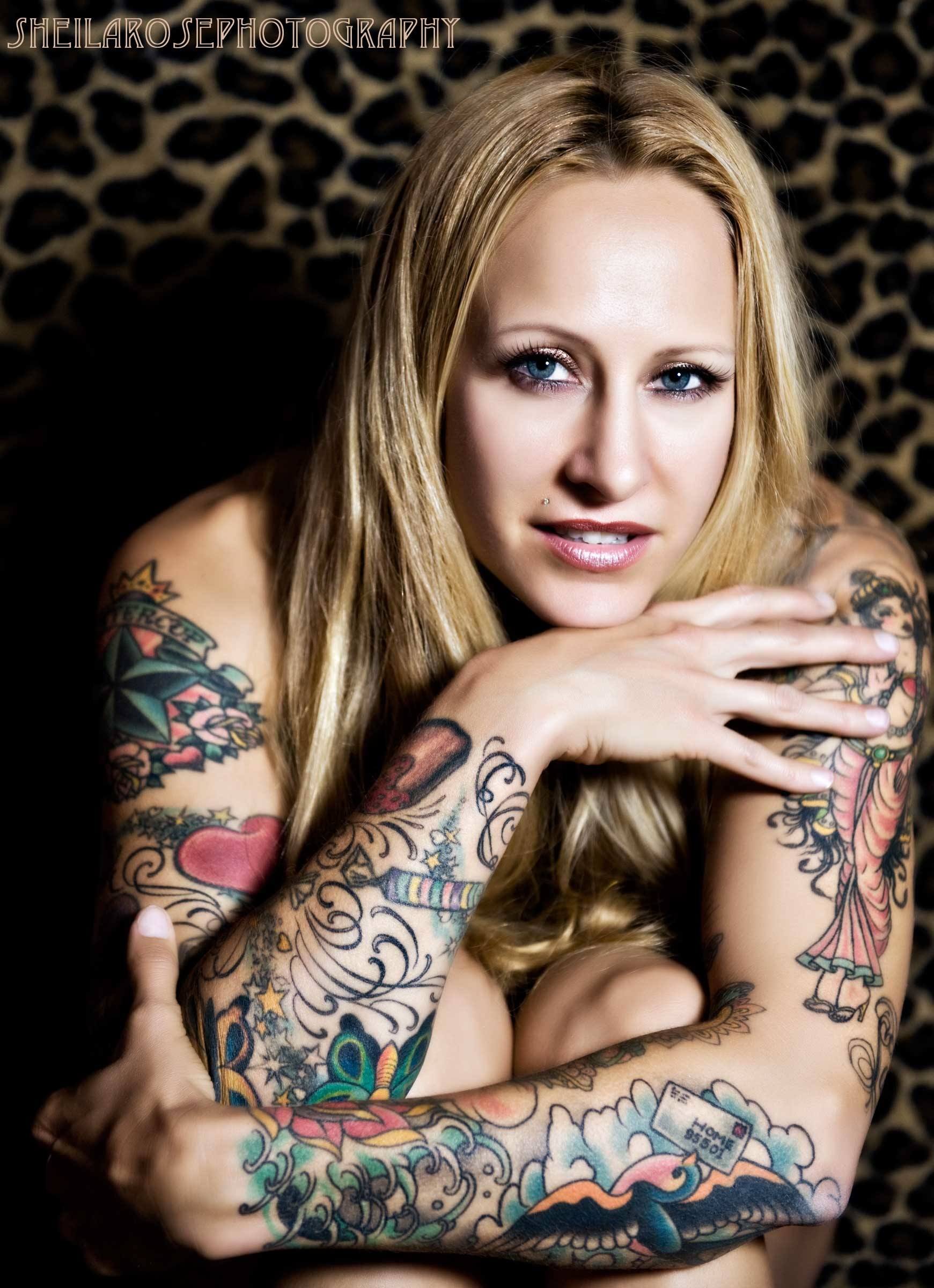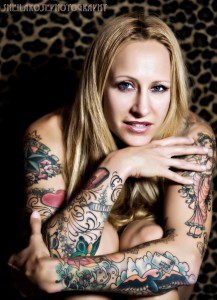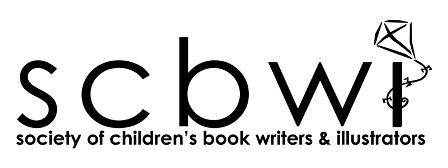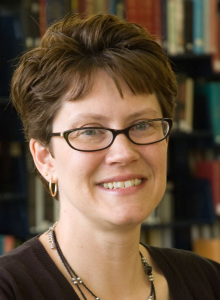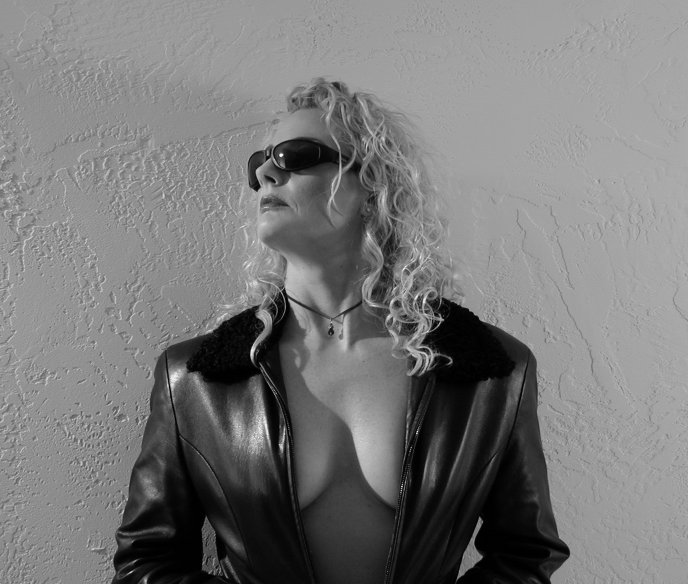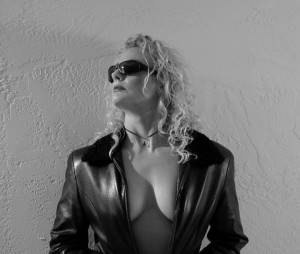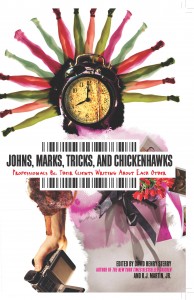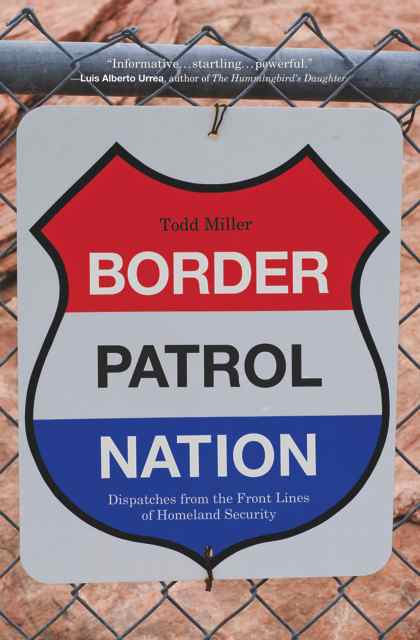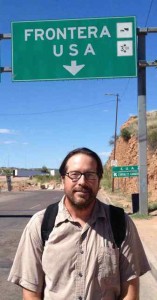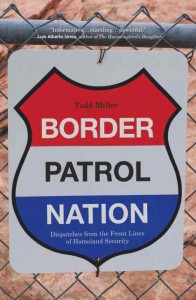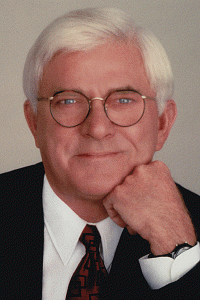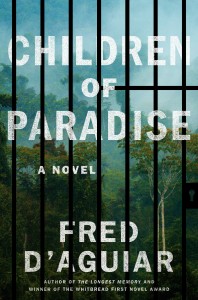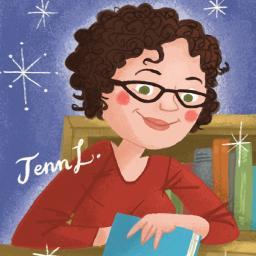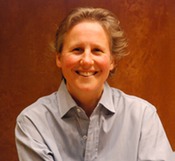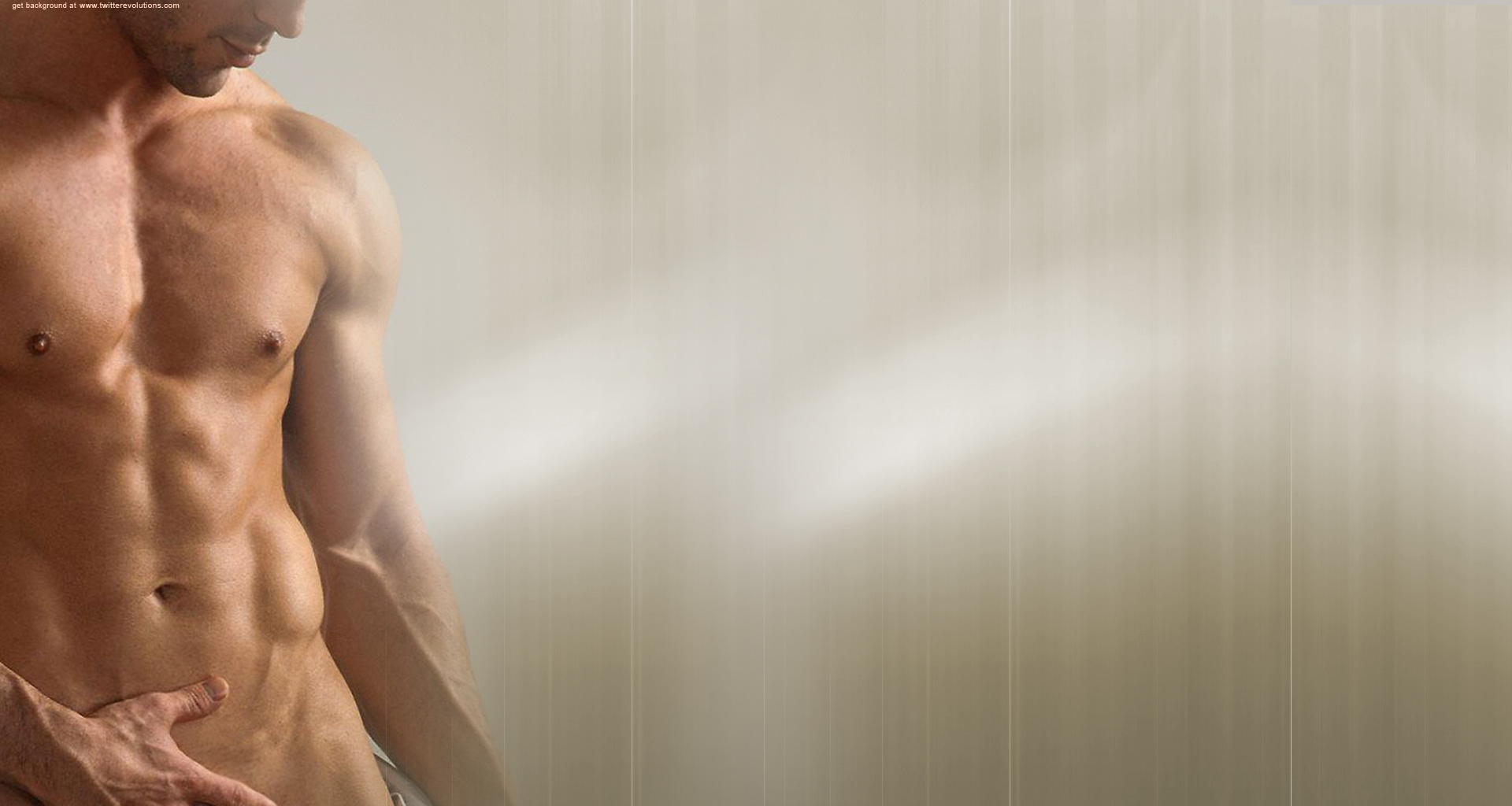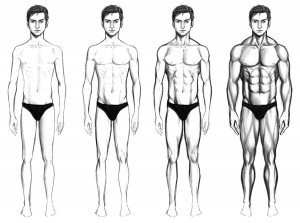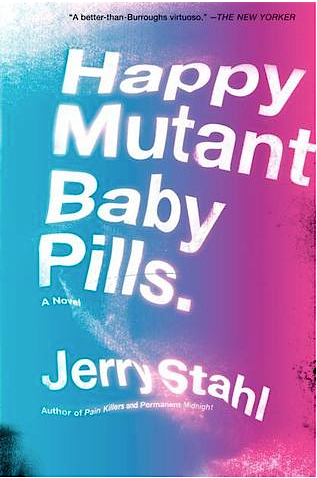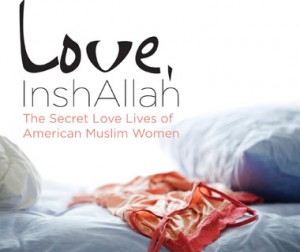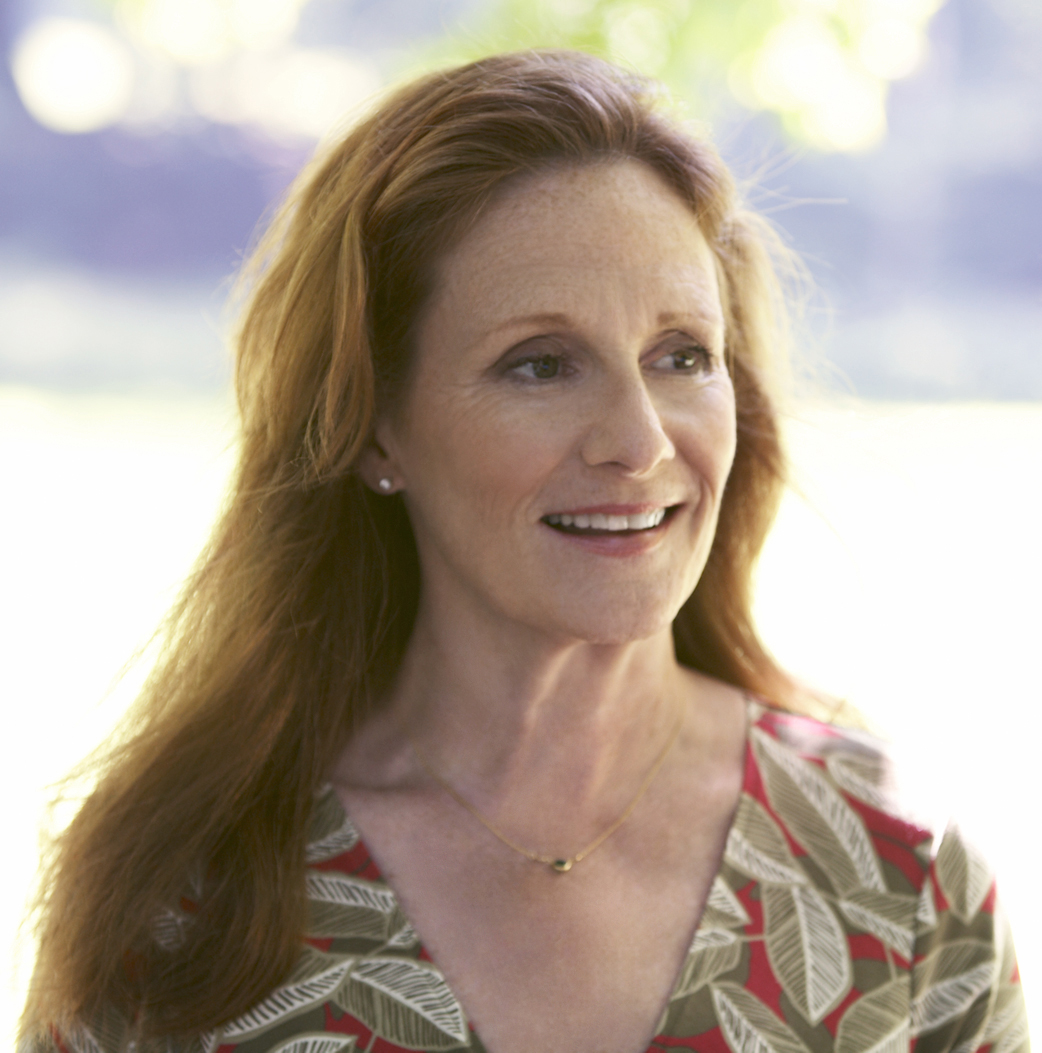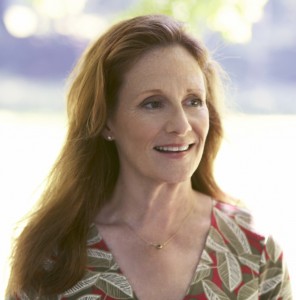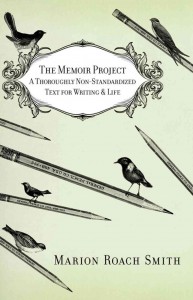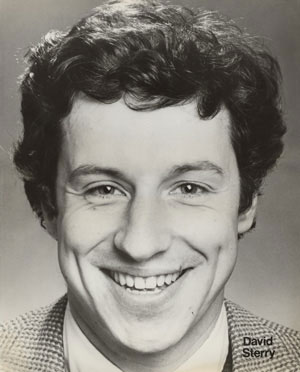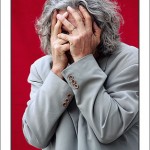To read on Huff Po click here.
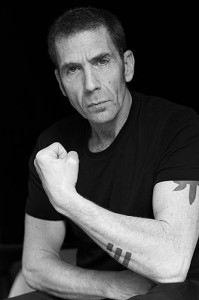 I first met Jerry Stahl at the Los Angeles Book Fair, back when it was held at UCLA in Westwood, the second happiest place on earth. It was blazing hot, and Jerry was sitting in a booth trying to promote his book, squirming like a bug under a microscope as all the happy peppy people passed by. He looked like something out of a Kafka novel written by William Burroughs, a writer about to be transformed into a junky cockroach. Which is basically how I felt, having been in a booth trying to promote my own book next to Hollywood legend Janet Leigh, who was signing her new memoir, and had a line of adoring fans snaking around the block. While I sat there sweating like an amateur smuggler being interrogated at customs while a hundred bags of junk clogs his colon. Jerry is one of those rare writers who goes between Hollywood screenplays and novels. He writes dark subversive stories and he somehow continues to get away with it. I should, for the sake of full disclosure, admit that he is one of my favorite writers. Steeped in the grand tradition of Noir which has spawned such writers like Raymond Chandler, James Ellroy and Dennis Lehane, he also brings a wicked black LOL comedy to the table. Which is a very hard thing to do. <em>Happy Baby Mutant Pills</em> is his new book, a scathing, rollicking indictment of the pharmaceutical/chemical industry told from the perspective of a dope fiend hack who writes the horrifying disclaimers which come with almost all modern drugs. So I thought I’d check in with Mr. Stahl and pick his brain about Big Pharma, killing someone with a paperclip in the bathroom of the downtown LA Bus Depot, and the sick sordid business of publishing.
I first met Jerry Stahl at the Los Angeles Book Fair, back when it was held at UCLA in Westwood, the second happiest place on earth. It was blazing hot, and Jerry was sitting in a booth trying to promote his book, squirming like a bug under a microscope as all the happy peppy people passed by. He looked like something out of a Kafka novel written by William Burroughs, a writer about to be transformed into a junky cockroach. Which is basically how I felt, having been in a booth trying to promote my own book next to Hollywood legend Janet Leigh, who was signing her new memoir, and had a line of adoring fans snaking around the block. While I sat there sweating like an amateur smuggler being interrogated at customs while a hundred bags of junk clogs his colon. Jerry is one of those rare writers who goes between Hollywood screenplays and novels. He writes dark subversive stories and he somehow continues to get away with it. I should, for the sake of full disclosure, admit that he is one of my favorite writers. Steeped in the grand tradition of Noir which has spawned such writers like Raymond Chandler, James Ellroy and Dennis Lehane, he also brings a wicked black LOL comedy to the table. Which is a very hard thing to do. <em>Happy Baby Mutant Pills</em> is his new book, a scathing, rollicking indictment of the pharmaceutical/chemical industry told from the perspective of a dope fiend hack who writes the horrifying disclaimers which come with almost all modern drugs. So I thought I’d check in with Mr. Stahl and pick his brain about Big Pharma, killing someone with a paperclip in the bathroom of the downtown LA Bus Depot, and the sick sordid business of publishing.
David Henry Sterry: What made you decide to write something about the wretched pharmaceutical industry? And why did you choose to attack the subject from the POV of the guy who tells us that being bitten by a werewolf may lead to “mild euphoria, feelings of newfound power, sudden appearance of full-body pelt and canine incisors during a full moon. Some patients report disturbing ‘incidents,’ followed by memory loss and occasional incarceration. See your doctor if you experience rapid ‘bulking up,’ four-legged gait, urge to urinate outdoors or kill and eat people”?
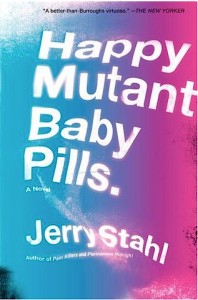 Jerry Stahl: The question would be “why not?” Sometimes a voice just feels right for the time. During a period of world-class insomnia, I found myself zoning on Morning Joe at four in the morning. But as soon the commercials came on — inevitably remedies for torments of the depleted testosterone, excess fat or frequent urination variety — I found myself riveted. Beneath the blatant comedy fodder of a product supposed to boost your manhood that can actually shrink your testicles, there’s a deeper unspoken and ultimately soul-crushing message: sure we might give you bleeding eyeballs, rectal ooze and suicidal thoughts — but guess what? Apparently your life is so hellish that busloads of people just like you have decided the only way to survive it is to take our pills — no matter how grotesquely unpleasant the side effects. If you want to understand America, follow the pharmaceuticals. Ironically, the reason I had insomnia is that I was on a toxic cocktail of drugs as part of a pharma-company trial to try and cure the Hepatitis C I’d had for decades, from being a junky. The non-FDA-approved medication wiped out my virus in a week. But the pills were so toxic, the doctors told me I couldn’t so much as touch my pregnant wife’s skin after I’d touched one. We either had to separate or have sex in bee-keeper suits. Think about that. One wrong move and the baby could’ve looked like a jellyfish with Tony Robbins teeth. Of course the pharmaceutical industry is appalling, but they also saved my life. It’s a moral dilemma. What if you have appendicitis and Joseph Mengele takes out your appendix? Do you shoot him once you’re up and around? The eternal question.
Jerry Stahl: The question would be “why not?” Sometimes a voice just feels right for the time. During a period of world-class insomnia, I found myself zoning on Morning Joe at four in the morning. But as soon the commercials came on — inevitably remedies for torments of the depleted testosterone, excess fat or frequent urination variety — I found myself riveted. Beneath the blatant comedy fodder of a product supposed to boost your manhood that can actually shrink your testicles, there’s a deeper unspoken and ultimately soul-crushing message: sure we might give you bleeding eyeballs, rectal ooze and suicidal thoughts — but guess what? Apparently your life is so hellish that busloads of people just like you have decided the only way to survive it is to take our pills — no matter how grotesquely unpleasant the side effects. If you want to understand America, follow the pharmaceuticals. Ironically, the reason I had insomnia is that I was on a toxic cocktail of drugs as part of a pharma-company trial to try and cure the Hepatitis C I’d had for decades, from being a junky. The non-FDA-approved medication wiped out my virus in a week. But the pills were so toxic, the doctors told me I couldn’t so much as touch my pregnant wife’s skin after I’d touched one. We either had to separate or have sex in bee-keeper suits. Think about that. One wrong move and the baby could’ve looked like a jellyfish with Tony Robbins teeth. Of course the pharmaceutical industry is appalling, but they also saved my life. It’s a moral dilemma. What if you have appendicitis and Joseph Mengele takes out your appendix? Do you shoot him once you’re up and around? The eternal question.
DHS: I was trained as a writer in the Disney system, where everything is plotted out beforehand to the point of strangulation. Which explains, in part, why Disney movies suck so hard, and why the nickname for the company inside those hallowed halls is Moushwitz. Do you spend a lot of time outlining and working on plot before you start writing?
JS: Wow. I’d heard Walt Disney was anti-semitic, but I didn’t know he ran a camp. Anyway, outlines give me hives. Somewhere Mailer said writing a novel is like driving a car at night. You can see about 20 feet up the road with your headlights, and once you cover that twenty feet, you can see the next twenty. You don’t know what you’re going to do next until you find out what you just did. For me voice is more important than plot. If I fall in love with a voice, I’ll follow it anywhere. In Nicholson Baker’s new novel, the narrator is riveting on the subject of lawn sprinklers. Burroughs can spend ten pages talking about his big toe, and I’m in. Mary Gaitskill, Raymond Chandler, Flannery O’Connor, Rick Moody — I’m not sure I could tell you the plots of any of their work, but I could probably recite entire sentences, because the voices got in my head. Screenplay-wise, outlines are a necessary contrivance. The people giving you money want to know how you’re going to get from A to whatever comes after A. In real life, plot is something you don’t see until its over and you look back, trying to figure out what the fuck happened.
DHS: You write with such gruesome, grotesque Grand Guignol style, are you ever tempted to try to tame the beast and write something that won’t offend, upset and turn off a huge chunk of the fly-by states? And do you ever get pressure from your publishers to do so?
JS: One man’s Grand Guignol is another mans’ weekend with the family. My favorite DeLillo line, from White Noise, is “the special grotesquerie of sane men leading normal lives.” Who gets to be arbiter of offensive vs. non-offensive? The inventory manager at Walmart? It’s a lame construct. (Not to mention, the Walton family keeps hundreds of thousands of employees in gnawing poverty, while they themselves live like Republican Sun Gods.) Fuck that. You want upsetting: how about, everybody you ever know and love is going to die, many in less-than-felicitous fashion, and there’s not a fucking thing you can do about it? It’s right there in the Bible. Beyond that, while they may not be reading me, I would guess there’s just as much gruesome in so-called flyover states as there is anywhere else. Don’t the Cheneys live in Wyoming? For the record, don’t think I never write about sunshine buttercups. For a while I’ve had a column in The Rumpus, OG DAD, about being a late-life second-time-around father. I’m a font of adorable tot anecdotes. Plus which, trust me, you haven’t gone near Grand Guignol until you’ve been front and center when your baby’s tearing out of the birth canal and your wife is screaming obscenities that would make Linda Blair blush and there’s enough gore on the sheets to make In Cold Blood look like Ellen. When my first child was born I was on heroin, and when my second was born, I remembered why I needed the shit. It looked like an axe murder. The most beautiful moments in life are not the most genteel, except in romance novels. To me, the scariest artist on the planet was Thomas Kinkade. As for my publishers, I’m lucky. They realize by now that I’m not Mitch Albom.
DHS: You’ve written a real memoir, Permanent Midnight, and a fake memoir, I, Fatty. Is there a difference as you approach this material, as you were writing these similar, but clearly different kinds of books?
JS: It’s funny, Philip Seymour Hoffman, who at one point was going to play Arbuckle, told me when we met that he read I, Fatty as another memoir — except in this one I’m disguised as a fat silent movie star. Which rang so true it made me squirm. Sometimes the author is the last to know. At readings, there are always people who tell me they found Permanent Midnight brutal and I, Fatty almost, you know, sweet. To me it’s the other way around. I recently had to re-read <em>Permanent</em> — out loud, for the book-on-tape. What surprised me is how, reading it now, PM has a kind of naiveté that I couldn’t see when I wrote it… But then I look at Fatty’s story, which — on the surface — couldn’t be more different than mine. Here’s an abused and abandoned fat boy who grows up to be a wildly successful and visionary baby-man movie star. The first actor to make a million dollars. Loved by the world until the world decides he’s a virgin-raping pig and publicly shames him into prison and penury. Hands down, I Fatty strikes me as a much more brutal book. Maybe Hoffman was right. Because I was emotionally naked behind the fat-suit — like Anton Scalia under his robes on Casual Court Fridays — I was able to show all the pain, without all the fireworks, in a way I didn’t have the chops, or the heart, to do in Permanent Midnight. Picasso said “Art is the lie that reveals the truth.” To me it’s the other way around.
DHS: <em>Happy Baby Mutant Pills</em> is written in the first-person, and it feels, in form anyway, like a memoir. What advice do you have for writers who want to take material from their own life and turn it into fiction?
JS: I’m a sucker for an unreliable narrator. And there’s an immediacy to first person that I love. Advice-wise, I would only say that, in my life, there are moments that have felt more like fiction than reality. Or maybe it’s just that I had to dissociate to survive. (I think it was Robert Stone who said writing a novel is like sanctioned schizophrenia — or maybe it was Cher.) In any event, those are the moments that inspire. On some level, the real subject of any first-person fiction is how the narrator sees the world. Whatever happens after “Call me Ishmael,” Melville lets Ishmael hold the camera.
DHS: What was your inspiration for the paperclip in this temple murder scene, which is somehow a hysterically funny and disturbingly graphic attack on all the senses, particularly the olfactory?
JS: I should probably say that, as I was writing the novel, I found myself idly performing a lobotomy with my Number 4 pencil. (I actually typed “slobotomy,” which is a better word.) But why lie? I can’t remember where that came from. I just remember why it came. My theory has always been, when you don’t know what to write, write something you’ve never read before. As for the olfactory issue, let’s just say, death doesn’t smell good. If you’ve been there, I don’t have to explain. If you haven’t, God bless, are you in for a big surprise.
DHS: They say you should write what you know. Clearly you know a lot about ingesting, injecting, being addicted to and getting clean from heroin. But did you do a lot of research into the pharmaceutical industry? Because it seems like you have a keen insider’s insight into that giant soul sucking industry.
DHS: I love to research. I always over do it, until I’m crushed under stacks of shit I absolutely have to get in the book — but which, if I included even half of, would choke the thing to death in five minute. What gets in is half random, half obsessive. For example, with a baby on the way I was obsessed with breast milk, which it turns out now includes everything from toilet cleaner to lithium. And that’s the healthy alternative. I have no insider’s insight, just an outsider’s obsession. Every time I see the olestra ad, with the famous “anal leakage” side effect, I think, some guy had to get up in the morning, drag his ass to the subway, get to the office and sit down with his Dilbert mug and his shitty MacDonalds apple turnover and actually write that. To some extent, this novel is my way of saying “Hats off!”
DHS: Who are some of your favorite writers, and why?
JS: It’s a changing roster. The last ten books I read and loved were Sam Lipsyte’s The Fun Parts; Michelle Tea’s Valencia; Lit by Mary Karr, Me and the Devil by Nick Tosches; Gun Machine by Warren Ellis, The Flame Alphabet by Ben Marcus; Days of Destruction, Days of Revolt, by Joe Sacco & Chris Hedges; I, Lucifer by Glen Duncan and — a couple of yearly re-reads — The Demon by Hubert Selby Junior and Denis Johnson’s Jesus Son. You couldn’t think of more disparate writers. But what unites them — for me — is that they all say things no one else is saying, in ways no one else is saying them. That’s what I crave in writing — and any other genre: artists who say the unsayable, or try to.
DHS: You move back and forth between writing for the screen and writing books. How is your approach different in these two mediums?
JS: For me, scripts are harder because they require more social skills. You can hide out in your pad and bang out a 800-page novel and never have to speak to a soul you don’t want to speak to. With movies — and I say this with love — when you’re not writing you’re talking to people all the fucking time. Sometimes they’re talking while you’re writing. That’s the nature of the beast. You can’t have a character blow his nose in his tie without justifying it. Which isn’t necessarily bad, just a different process. The best thing about movies & television- when it’s not the worst thing — is collaborating. I’ve been on a good run — I worked a couple years with Philip Kaufman on Hemingway & Gellhorn, which was like being paid to go to film school. Larry Charles and I have been writing together, working, among other things, on turning Pain Killers into a cable series, Manny & Mengele. LC’s got so many great show biz stories, I keep bugging him to do his memoir, because I’d kill to read the fucking thing. A couple weeks ago I did an episode of Maron, which meant hanging in a room with Marc Maron and a bunch of comedians. Fucking heaven.
DHS: Why did you choose to reveal to the American public that you were a heroin addict? What with the repercussions?
JS: The repercussions? I can’t say I thought about them. I was so desperate, I didn’t think about the pros and cons of ‘revealing’ anything. I was trying to survive. What can I say? I got a book deal and I didn’t look back. Once the check cleared, I got the money to stop living in the electricity-free, no plumbing basement of a crackhouse and actually get my own apartment. I got to stop going to the bathroom in restaurants. I bought a bed. The little things. People think just cause you give up dope, your life works out. In fact, once you give up dope, it just means you have to deal with all the shit in it without any buffer. On the natch. Which is harder, in some ways, than being on dope. The negatives? Inadvertently hurting some people I cared about by how I handled them in the book. I could have done a better job. And wish I had. But I’ve tried to make amends — and pay back all the money I borrowed or stole. That book, and every thing that happened after, was a miracle, but the bigger miracle was getting off dope in the first place. Getting clean doesn’t mean you’re Mr. Happy Guy the rest of your life. It just means you stop being Mr. Junky Asshole. As for the public, I don’t think we spend a lot of time thinking about each other.
DHS: Cocaine was my drug of choice, and I swear whenever I see someone snorting up a big fat juicy line, my nostrils start twitching and all I want is to perform the sacramental ritual: the chopping, the smoothing into lines, the rolling up of the $20 bill, and the Great Suck. I’m just curious, when you see someone on TV or in the movie shooting up, do you get a knee-jerk nostalgia for banging dope?
JS: Occasionally I see some skeek nodding and drooling at a bus stop, and I get a little jealous. You know that fucker isn’t sweating the mortgage. He’s living the dream. Usually when somebody shoots up on TV, they’re doing it wrong — jabbing the rig in and slamming the plunger down without getting a register, which takes me right out of the scene. One of my first jobs in the movie business was needle wrangler on Permanent Midnight. Not to brag. I had to show Ben Stiller how to draw blood back in the syringe. It’s been downhill from there.
DHS: Who would you rather party with, Fatty Arbuckle or Ernest Hemingway? Why?
JS: Budd Schulberg told me that whenever he met Hemingway, Hemingway wanted to box. But if you were a better fighter than him — which Schulberg was — Hemingway would get pissed off and sulk. So I’m gonna go with Roscoe. I don’t know about party, but I would have loved to hang with Arbuckle after Hollywood chewed him up and spit him out. After he’d been smeared by Hearst and jailed and — despite being found innocent three times — universally shunned. He couldn’t buy a gig, and just being seen with him made you socially suspect. But he made a comeback — not because he needed redemption — but because he wanted to make movies. Imagine the kind of heart that takes.
I don’t trust anybody who hasn’t been to hell. And Arbuckle survived an inferno, public and private, I can’t even begin to contemplate. I don’t necessarily want to meet those who achieve “greatness.” But I am in awe of people who survive the unsurvivable.
DHS: I hate to ask you this, but what advice do you have for writers?
JS: Don’t do it if you don’t have to. But if you have to, have no expectations. And don’t listen to any advice anybody has about writing. Just get your ass in the chair. The best thing anyone ever said to me on the subject was Bruce Jay Friedman, who wrote two of the funniest books in the English language, Stern and A Mother’s Kisses. He said, “When you write a sentence that makes you squirm, keep going.” I’ve been pretty much squirming ever since.
Jerry Stahl’s memoir, Permanent Midnight, was made into a movie starring Ben Stiller and Maria Bello, and his novels include Pain Killers, Perv — A Love Story, Bad Sex On Speed, Plainclothes Naked, I, Fatty (optioned by by Johnny Depp) and his latest, Happy Mutant Baby Pills (optioned by Ben Stiller.) Among other places, his much-translated fiction and journalism have appeared in Esquire, Playboy, The Pushcart Prize Anthology, The Believer and Details, where he was Culture Columnist for three years — and his blog, “OG Dad,” appears irregularly on The Rumpus. He has written extensively in film and television, including, most recently, the HBO film, “Hemingway & Gellhorn” & the odd episode of the IFC series, “Maron.” (He also appears in this tiny movie directed by Larry Charles, with whom he is collaborating on a cable series, Manny & Mengele.) Anthony Bourdain said, “Jerry Stahl should either get the Pulitzer Prize or be shot down in the street like a dog.”
David Henry Sterry is the author of 15 books, a performer, muckraker, educator, and activist. His new book, Chicken: Self-Portrait of a Young Man for Rent, 10 Year Anniversary Edition, has been translated into 10 languages. His anthology, Hos, Hookers, Call Girls and Rent Boys was featured on the front cover of the Sunday New York Times Book Review. The follow-up, Johns, Marks, Tricks and Chickenhawks</a>, just came out. He has appeared on, acted with, written for, worked and/or presented at: Will Smith, Edinburgh Fringe Festival, Stanford University, National Public Radio, Penthouse, Michael Caine, the London Times, Playboy and Zippy the Chimp. His new illustrated novel is Mort Morte. He is also co-founder of The Book Doctors, who have helped dozens and dozens of amateur writers become professionally published authors. They edit books and develop manuscripts, help writers develop a platform, and connect them with agents and publishers. Their book is The Essential Guide to Getting Your Book Published.

